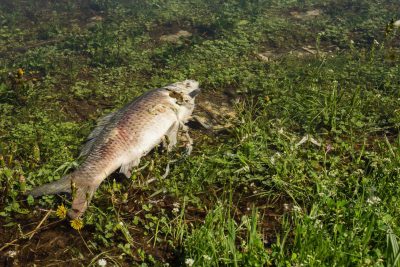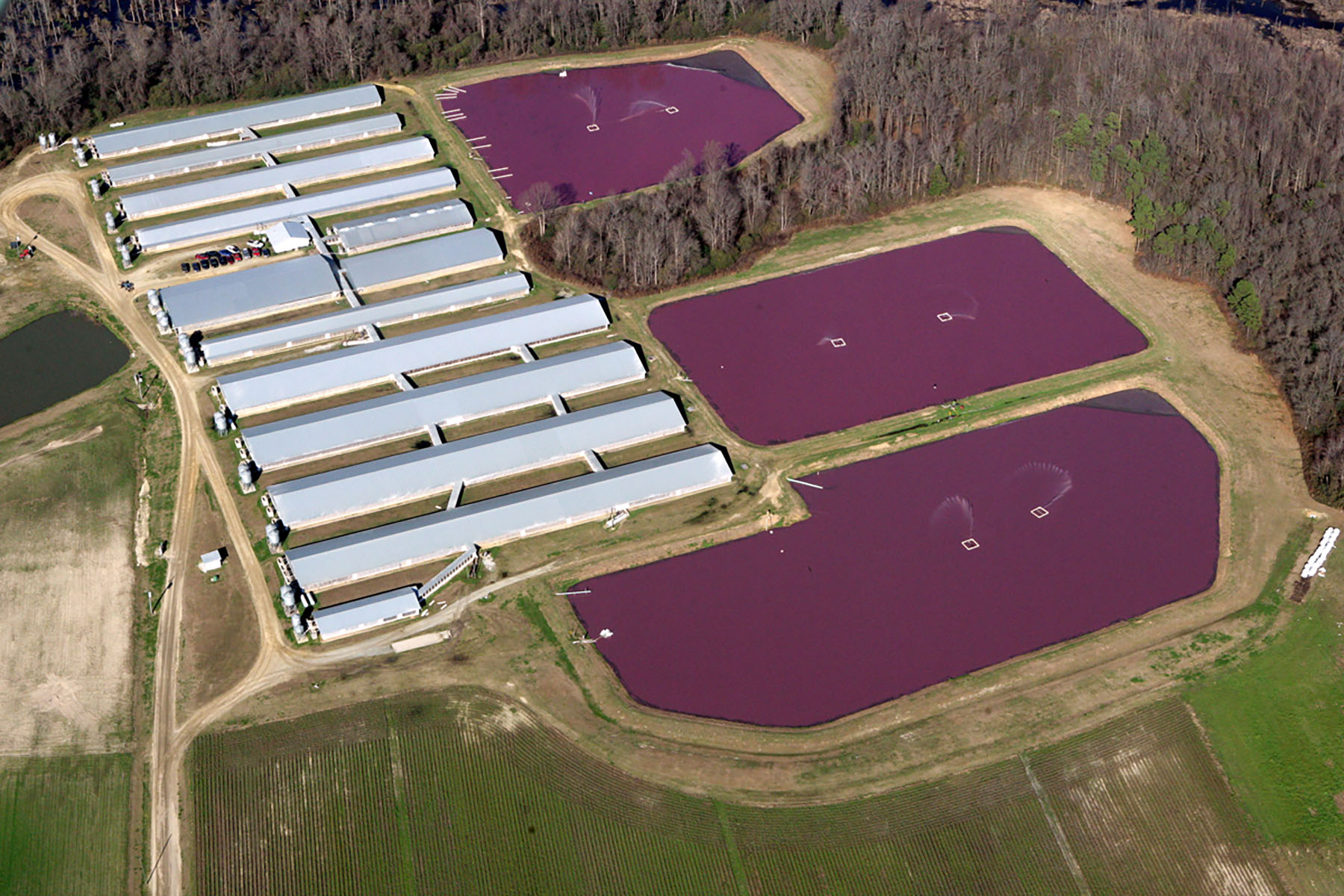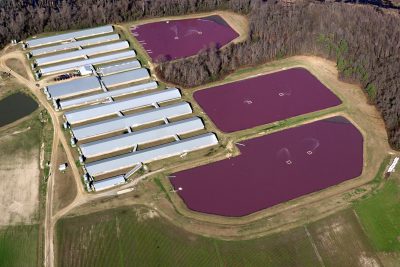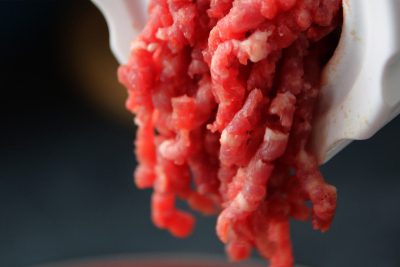Industrial animal agriculture, sometimes called factory farming or concentrated animal feeding operations (CAFOs), is a massive industry that exploits billions of animals annually and causes the most prolonged and intense suffering to animals on the planet. Intensive animal farming also harms the environment in many serious ways.
Air, Land and Water degradation
According to a seminal report by the Food and Agriculture Organization (FAO) of The United Nations, CAFOs are a major source of land, air and water degradation. Due to the staggering volume of animals, CAFOs generate massive quantities of waste, which includes nitrogen, phosphorus, and hydrogen sulfide. Traditionally, small farms had an easy and environmentally friendly solution to such waste: they recycled manure by spreading it on their crops for fertilizer. CAFOs can’t do that. There is too much waste and there are no crops, only buildings filled with thousands of animals. Their waste overloads the system. So CAFOs collect and store the waste in huge open ditches called “lagoons” but it leaks and leaches out and gets into our waterways.
Water Use and Pollution
Farmed animals consume one-half of all water used in the U.S. That’s not all; CAFOs produce “133 million tons of manure per year” … more than 40 times the amount of waste produced by humans. Unlike human waste, CAFO waste is usually not treated to reduce disease-causing pathogens, nor to remove chemicals, pharmaceuticals, heavy metals, or other pollutants. Runoff or spills from CAFOs enters streams, rivers, and lakes, killing fish and contaminating human drinking water supplies. In the State of North Carolina alone, the amount of fecal waste coming out of hog CAFOs is close to ten billion gallons per year, “enough to fill more than 15,000 Olympic-size swimming pools”.
Air Pollution and Harm to Neighboring Communities
CAFOs are also a hazard to air quality: over 168 gases are emitted from CAFO waste, including hazardous chemicals such as ammonia, hydrogen sulfide, and methane. Fans inside the CAFO buildings blow the contaminated air to the outside, where it impacts the quality of life for the people living in the surrounding community. People living near CAFOs commonly suffer from headaches, nausea, and other problems caused by the fumes and odors coming from the CAFOs. These human health problems are disproportionately caused to people living in lower income areas, where people are less likely to be able to challenge them. Children who live near CAFOs suffer a higher incidence of asthma.
Climate Change
Many people do not realize it, but CAFOs are also a major contributor to climate change. the livestock sector generates a larger contribution of gaseous emissions that contribute to global warming than the fuel from the entire transportation sector worldwide. The FAO report mentioned above warned: “Livestock are one of the most significant contributors to today’s most serious environmental problems. Urgent action is required to remedy the situation, and they are a significant contributor to climate change.” A series of updated reports from the FAO have reiterated these findings and the urgency in addressing them.
These multifaceted concerns are disturbing, but they also present the opportunity to work collaboratively with a wide range of stakeholders, including environmentalists, the neighbors who live near CAFOs, the people who work in them, and public health officials. In so doing, we can create a better chance of tackling the CAFO problem through a broad-based approach.
What you can do
- Learn more about the negative environmental impacts of CAFOs. In addition to the links provided above, here are some other materials you can check out for additional information:
– NRDC, CAFOS: What We Don’t Know Is Hurting Us
– Pew Commission, Putting Meat on the Table, Industrial Farm Animal Production in America - Share what you learn with your colleagues at work and school.
- Talk to your local, state and federal representatives about the need for strong enforcement of the laws that protect the environment and public health. Demand that the CAFO industry clean up its own mess, rather than expecting taxpayers to foot the bill.
- Make change with your wallet! Don’t support CAFOs/factory farming.
- Follow and support the ground-breaking work being done by the first and only Animal Law Litigation Clinic at Lewis & Clark Law School, focused exclusively on farmed animal issues.
By Joyce Tischler, Professor of Practice, Animal Law, Center for Animal Law Studies at Lewis & Clark Law School




